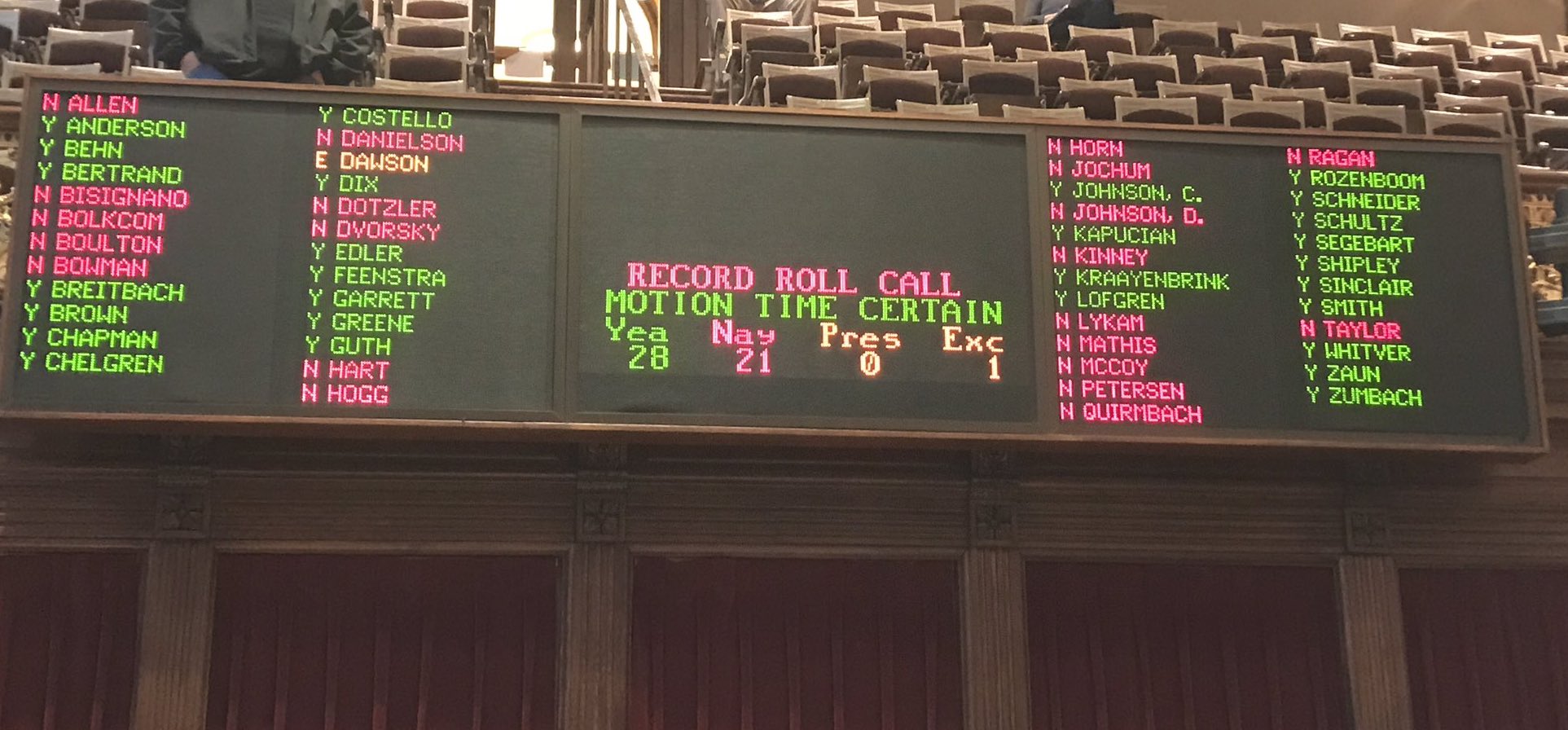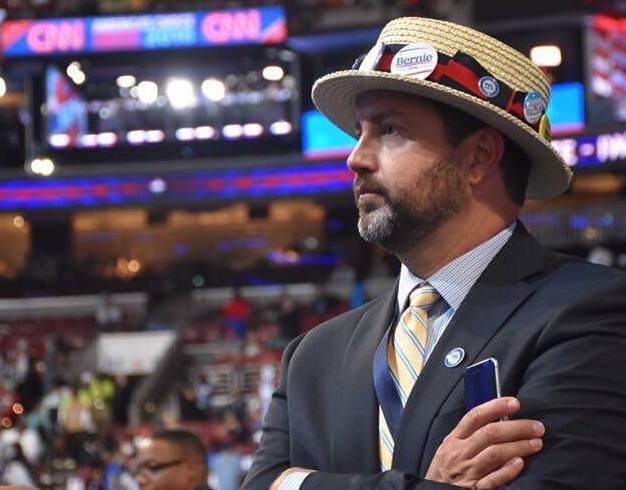Republicans in the Iowa House and Senate voted today to dramatically reduce collective bargaining rights for some 180,000 public employees, following approximately 27 hours of debate in the Iowa Senate and fourteen and a half hours of debate in the Iowa House. GOP leaders moved House File 291 and Senate File 213 simultaneously through both chambers in order to speed up the process.
Democrats had offered dozens of amendments to the bills, which were published for the first time on February 7. Instead of allowing full discussion of every amendment, GOP leaders moved to cut off debate at a “time certain” today. That maneuver had never been used in the Iowa Senate and has been invoked only rarely in the Iowa House–including to end debate on the collective bargaining bill Republicans passed in March 2011. Debate ended in the Iowa House at noon, after which the majority quickly voted down all the remaining amendments with no discussion. Six Republicans joined all 41 Democrats to vote against the bill on final passage. Two of them, Tom Moore and Dave Heaton, are former teachers. Clel Baudler is a retired state trooper. Andy McKean and Shannon Lundgren were just elected from eastern Iowa swing districts, where registered Democrats outnumber Republicans. McKean is also very familiar with Chapter 20 as a former county supervisor and longtime state lawmaker. I don’t know why Mary Ann Hanusa opposed the bill. UPDATE: Hanusa did not respond to my request for comment, but I learned from another source that she is also a former teacher who works in education administration.
Senators debated all night long Wednesday into Thursday morning, with Republicans voting down every Democratic amendment. Independent State Senator David Johnson voted with Democrats on all the amendments and joined them in giving several passionate speeches. Few Republicans in either chamber chose to speak in favor of the bills, aside from Senate Labor Committee Chair Jason Schultz, House Labor Committee Chair Dave Deyoe, and State Representative Steven Holt, who floor-managed the bill and distinguished himself as the legislature’s least convincing liar. The Des Moines Register’s William Petroski summarized some of the important Democratic amendments. I didn’t stay up to watch the whole debate, so would welcome examples of some of the most absurd Republican comments, like State Senator Mark Chelgren accusing Democrats of “stalling” while his party had shown an “incredible amount of patience.” Nothing says “patient” like making sweeping changes to a 43-year-old law, affecting 180,000 Iowans, after only nine days in the legislature.
Senate leaders ended debate at 2 pm Thursday, after which Republicans voted down the remaining Democratic amendments, then substituted the text of the House bill for the Senate bill, to get the legislation to Governor Terry Branstad more quickly. Branstad’s chief of staff, Michael Bousselot, spent the final hours of debate in the Senate chamber. House File 291 eventually passed on a 29-21 Senate vote.
Iowa’s largest public-sector union, AFSCME Iowa Council 61, plans to file a lawsuit claiming the new law is unconstitutional, presumably because of the way it grants more bargaining rights to “public safety” workers than to others, many of whom do dangerous jobs. Video from a February 16 press conference by labor leaders is available here.
I enclose below statements about the bill by legislative leaders from both parties, as well as documents prepared by Iowa House Democratic and Republican staff, which discuss in more detail how House File 291 will affect collective bargaining rights for different types of public employees. Regarding substantive impacts, I also recommend the recent guest posts here by state employee Ruth Thompson, University of Northern Iowa Professor Chris Martin, and attorney James Larew, who predicted that today’s action “will be remembered as the most destructive blow to our ability to govern ourselves fairly and efficiently in nearly half a century.”
GOP spin notwithstanding, collective bargaining “reform” in Iowa was designed primarily with political goals in mind, like similar measures in other states. Republicans know that crippling public sector unions will make it harder for Democrats to win elections.
Although Republicans repeatedly claimed during the House and Senate debates that their bill would help local governments, Chapter 20 has worked so well that more than 140 school districts rushed to sign new contracts with the teachers union before the legislature acted. Boards of supervisors in several large counties passed resolutions condemning the proposal. Linn County Supervisor Brent Oleson’s case against the bill is convincing.
Continue Reading...














